Abstract
Wieners and sausages were prepared which contained the most heat-tolerant representative of the Mycobacterium avium-Mycobacterium intracellulare complex we were able to obtain. They also were prepared with infected tissues obtained from tuberculous swine. Processing conditions were as varied as possible. Neither incorporation of sodium nitrite in the emulsion nor presence of smoke during processing altered the heat susceptibility of the organisms. Substantial killing of the organisms occurred as wieners reached the upper processing temperatures, but hot oil or radiant heating of the "precooked" sausages allowed very short times within the killing range; hence, higher peak internal temperatures were necessary. The lethalities for these organisms of reaching and maintaining various processing temperatures are given.
Full text
PDF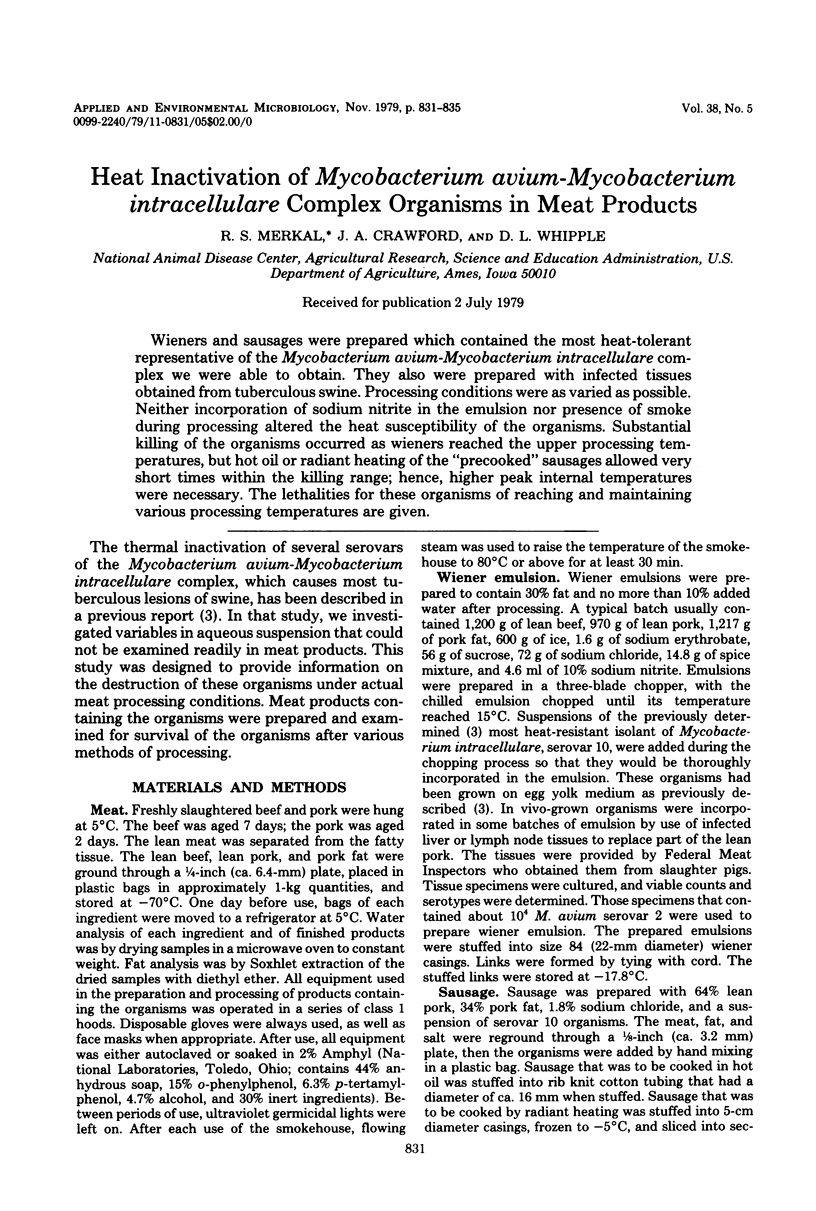
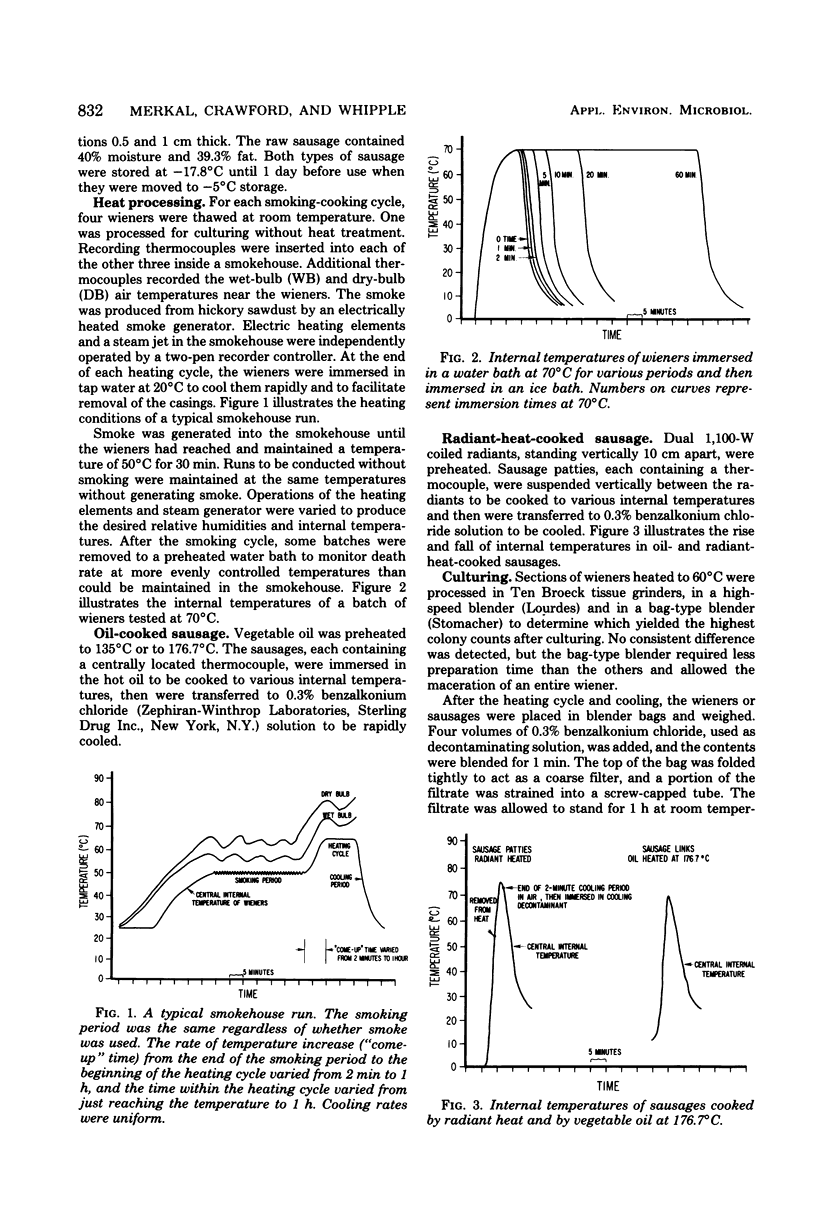
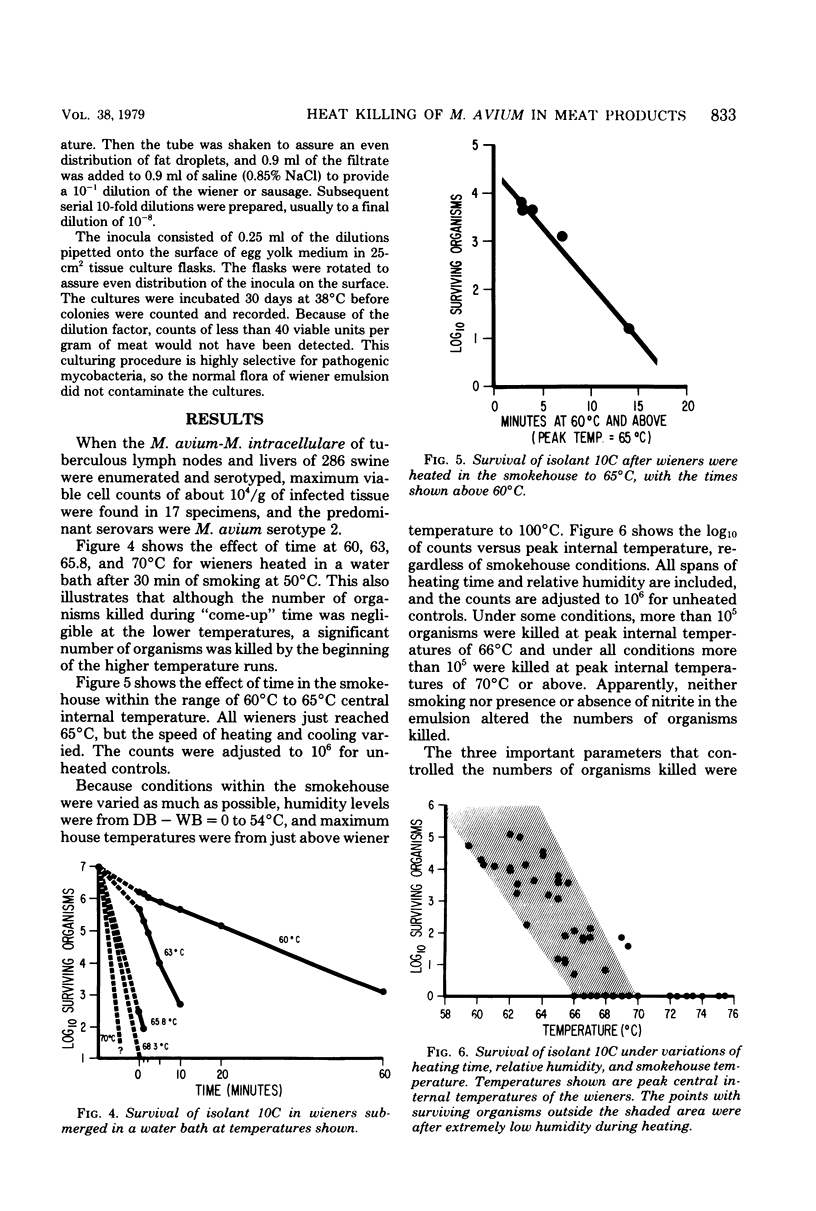
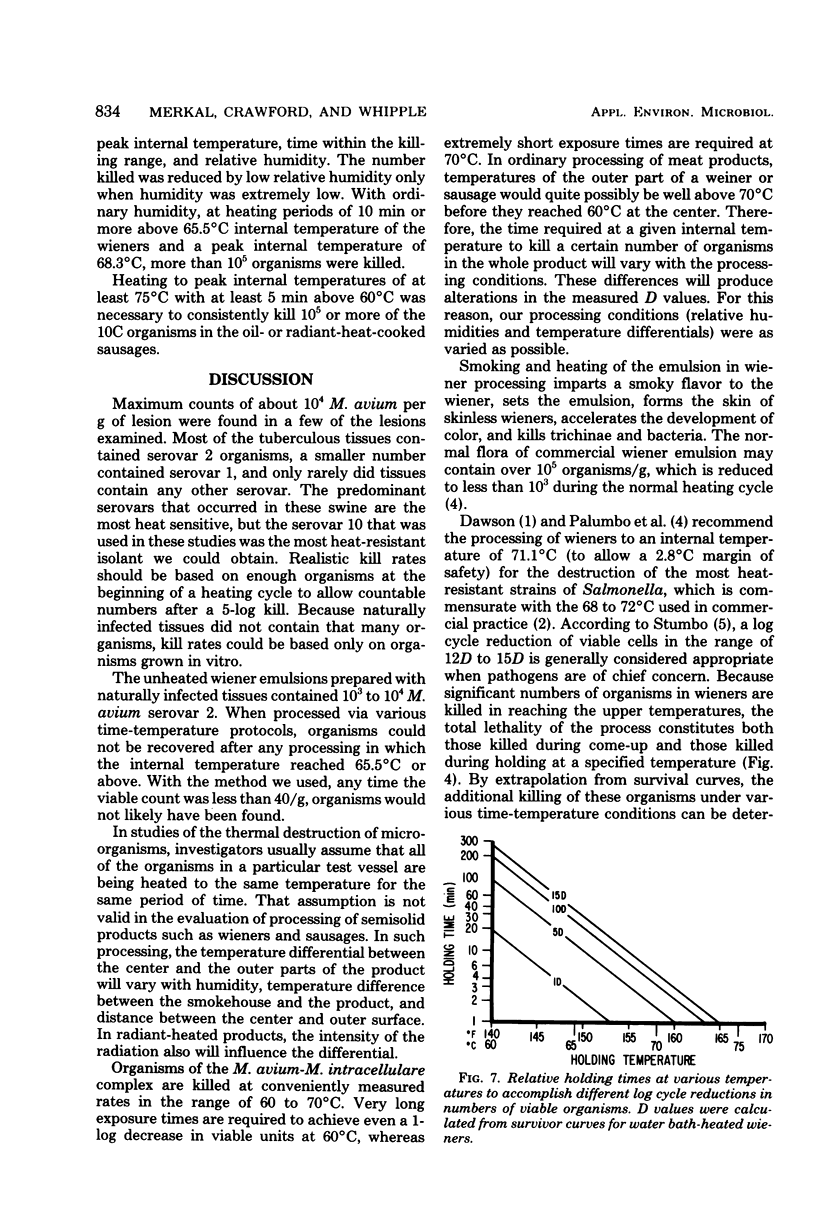
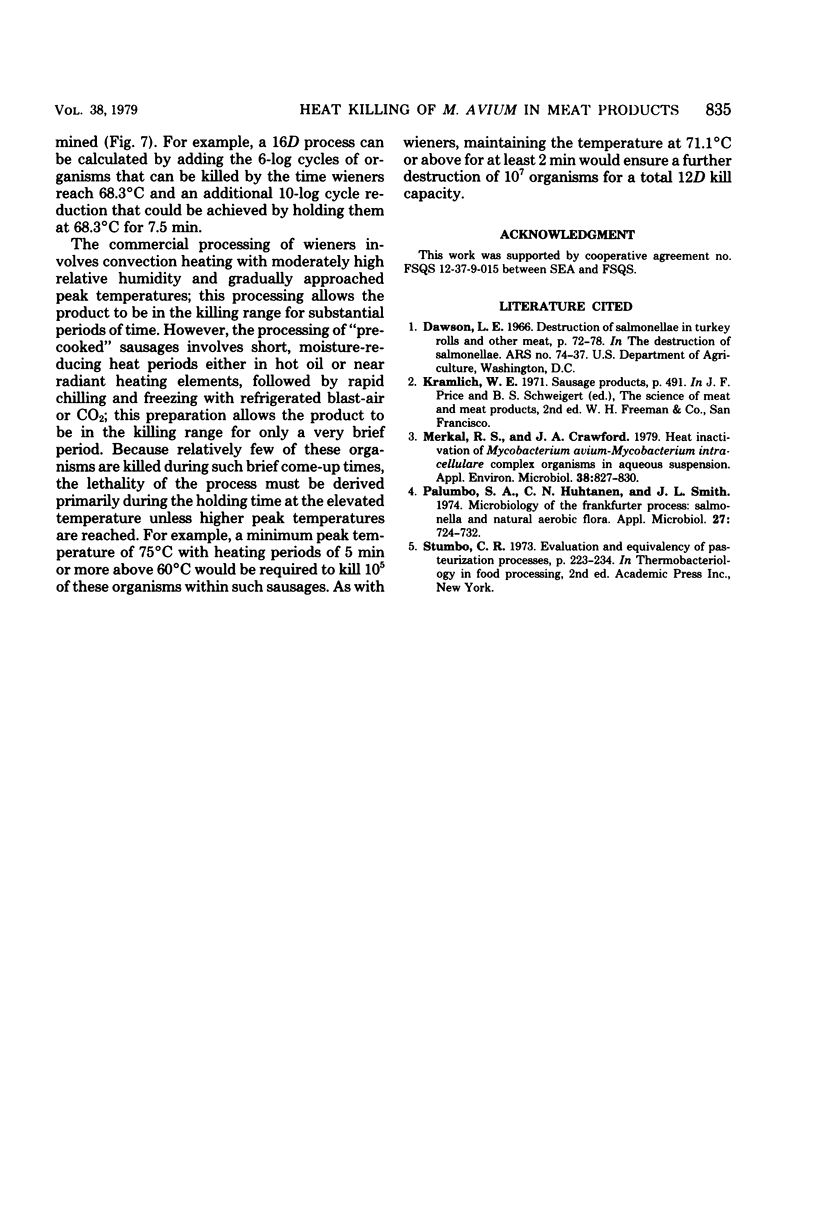
Selected References
These references are in PubMed. This may not be the complete list of references from this article.
- Merkal R. S., Crawford J. A. Heat inactivation of Mycobacterium avium-Mycobacterium intracellulare complex organisms in aqueous suspension. Appl Environ Microbiol. 1979 Nov;38(5):827–830. doi: 10.1128/aem.38.5.827-830.1979. [DOI] [PMC free article] [PubMed] [Google Scholar]
- Palumbo S. A., Huhtanen C. N., Smith J. L. Microbiology of the frankfurter process: salmonella and natural aerobic flora. Appl Microbiol. 1974 Apr;27(4):724–732. doi: 10.1128/am.27.4.724-732.1974. [DOI] [PMC free article] [PubMed] [Google Scholar]



